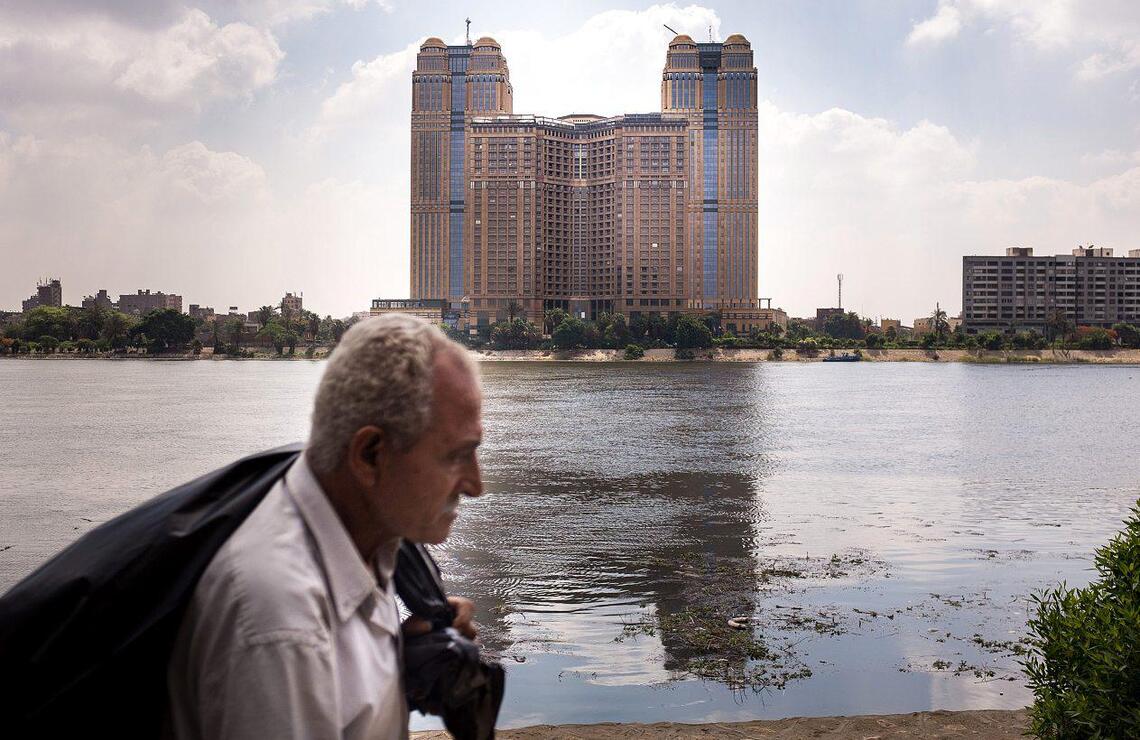
Selling Egypt by the pound
Massive investments by the Emirates and Saudi Arabia are providing temporary relief for an economy in crisis. But there is widespread resistance to what many see as a selling-off of assets.
Since the Central Bank of Egypt authorised floating the exchange rate of the Egyptian pound (EGP) on 6 March, the currency has plummeted from EGP 31 to EGP 50 to the dollar, falling in line with the black market rate. The Bank also raised its key rate by six points to a record 27.25%. The introduction of a floating exchange rate was a condition set by the International Monetary Fund (IMF) for releasing its loans to Egypt, which has a foreign debt of $165 billion. Following its actioning the IMF immediately granted a $5 billion loan to the country.
BOOSTING DIASPORA REMITTANCES
The Egyptian Central Bank's decision was taken just before Ramadan a month of festivities, and therefore of spending at a time when 106 million Egyptians, two thirds of whom live below the poverty line, are being crushed by inflation (35%). However, the overvaluation of the currency in relation to the official exchange rate often double the black market rate has had a serious impact on remittances from the diaspora (10 million Egyptians live abroad). Between 2022 and 2023, remittances fell by a third, from $32 billion to $22 billion, due to the unfavourable exchange rate. A floating pound could therefore encourage them to transfer more.
Since end-2023, the country's main sources of foreign currency have been under threat: tourism, which accounted for $13.6 billion in revenue in 2023, is in free fall. The war between Israel and Hamas has sparked a sharp decline in tourist numbers since last October, with Westerners fearing terrorist attacks. In the Red Sea, attacks by the Yemeni Houthis, in solidarity with the Palestinians [see AM 450, March 2024], have halved the number of visitors to the Suez Canal, which generated $8 billion in 2023.
EMIRATI SOVEREIGN WEALTH FUND TO THE RESCUE
Egypt can, however, count on its loyal ally, the United Arab Emirates. Abu Dhabi's sovereign wealth fund has promised to invest $35 billion, including $24 billion to develop Ras el Hikma. President Al Sissi wants to turn this peninsula on the Mediterranean coast, 350 kilometres west of Cairo, into a new tourist destination. However, this unexpected windfall from the Emirates is attracting criticism. Many Egyptians deplore yet another mega project. Marshal Al Sissi came to power in 2013 after overthrowing the Islamist president elect Mohamed Morsi, and has since launched a series of infrastructure projects that have tripled the country's debt without improving the per capita standard of living in the continent's third most populous country. The state is accused of selling off its heritage: in 2017, the sale of two Red Sea islands (Tiran and Sanafir) to Saudi Arabia had already aroused popular anger. And another mega project for a giant seaside resort has just been announced in Ras Gamila, in the south of Sinai, presumably for the benefit of Saudi interests.